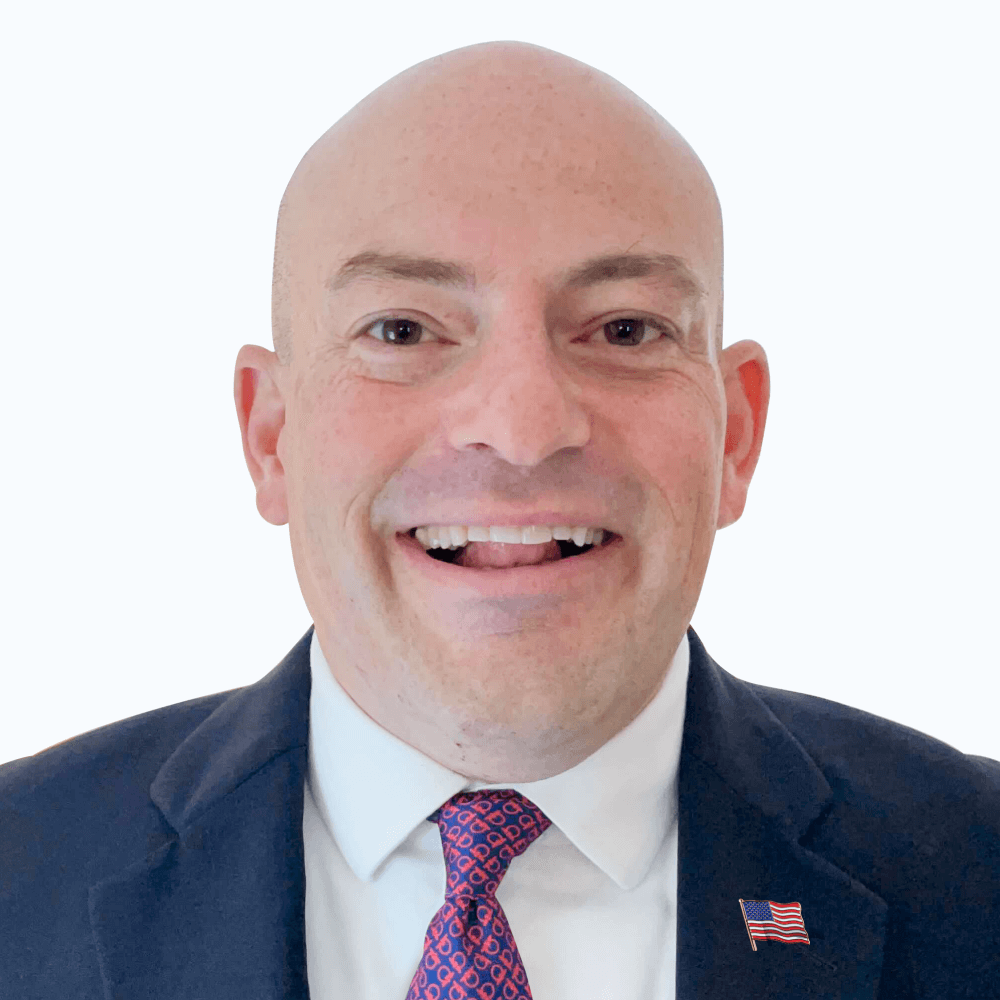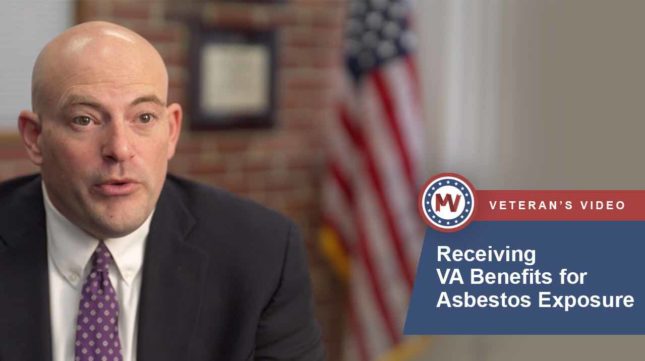The U.S. Department of Veterans Affairs (VA) Fiduciary Program can take a great load off of veterans with mesothelioma by allowing another person to manage their VA benefits. This allows the veteran to focus on mesothelioma treatment and recovery. Veterans can choose their VA fiduciary in most cases. Anyone who meets the VA’s qualifications can be a VA fiduciary.
What Is a VA Fiduciary?

A VA fiduciary is someone appointed to help disabled veterans manage their VA benefits.
The VA established its fiduciary program in 1975 to help veterans properly manage their health care and financial benefits with the help of someone they trust.
Through VA benefits, veterans with mesothelioma may receive disability compensation, medical treatment, and other forms of support, depending on their condition.
However, if veterans cannot properly manage their financial affairs or benefits, they may fall behind on payments for living expenses or lose money through scams.
Veterans may not be able to manage their VA benefits due to:
- Diseases
- Injuries
- Mental health conditions
- Old age
Fiduciaries may be appointed in 1 of 2 ways:
- The veteran provides medical evidence showing they cannot manage their benefits on their own
- The VA or a court determines the veteran needs a fiduciary due to existing medical conditions
Though the idea of a VA-appointed fiduciary may seem scary to some, VA Fiduciaries can be very helpful in making sure a veteran gets the benefits they deserve. In addition, a veteran usually gets to choose their VA fiduciary — meaning they can pick a spouse, relative, or trusted friend.
Reach out to us to get help filing and managing mesothelioma VA benefits.
VA Fiduciary Benefits for Veterans With Mesothelioma
Veterans can greatly benefit from the VA’s fiduciary program — especially if they have mesothelioma.
This cancer is very aggressive and often requires major medical treatments to improve survival. Thankfully, veterans may be able to receive VA health care while they battle their cancer.


It can be hard to afford various expenses during treatment — even with monthly financial VA benefits and health care coverage, expenses like mortgage payments and grocery bills can pile up.
This can add stress when the veteran is already fighting for their life.
The appointment of a fiduciary can relieve this extra burden. The veteran can devote their energy to recovering while their fiduciary ensures their benefits are used in the right ways.
VA Fiduciary Application Process
When veterans apply for VA benefits, a VA Regional Office or Pension Management Center receives information about their medical history. Based on this information, the VA may determine that veteran needs help to manage their benefits.
In this case, the veteran will receive a notice to appoint a fiduciary.
Video Summary: VA-accredited attorney Eric Hall notes the different VA benefits available to veterans and families affected by mesothelioma. View Transcript
Veterans diagnosed with asbestos-related diseases are entitled to several different types of benefits from the VA to include disability benefits, [and] health care benefits. There are even survivor benefits for those with asbestos-related diseases.
Veterans who have been diagnosed with mesothelioma as a result of their service in the military are likely to receive a benefit of $3,500 of monthly income tax-free to the veteran.
Veterans with mesothelioma who are exposed while they were in the service are also entitled to private benefits as well, and we encourage veterans to call and find out how we can help them.
If they are not automatically enrolled when they apply for VA benefits, the veteran must submit medical documents showing they cannot manage their affairs. From there, the VA will decide if they need a VA fiduciary.
VA Fiduciary Field Examiner Meeting
If the VA determines that the veteran needs a fiduciary, a field examiner will be sent to assess the veteran’s needs. This examiner can help determine who will be the best fiduciary for them.
The veteran chooses when and where to meet. Ideally, the veteran’s proposed fiduciary should attend this meeting.
The veteran should also compile a list of their income.
This includes:
- Monetary assets
- Recent bank statements
- Recurring expenses
- VA pension and similar benefits
This can help the field examiner and VA fiduciary document the veteran’s financial situation — and will help ensure the proposed VA fiduciary does not mishandle the funds.
Almost anyone can become a VA fiduciary provided they pass the VA’s screening process, which includes a competency interview and a criminal background check.
Character witnesses may also be called to assess the new fiduciary’s eligibility. The goal is to ensure the fiduciary can manage the veteran’s finances and protect their well-being.
How Much Does a VA Fiduciary Get Paid?
A VA fiduciary can charge up to 4% of what the VA pays to the veteran being represented.
So, if a veteran gets $5,000 per month from the VA in various benefits, the fiduciary can charge up to $200 for that month.
A fiduciary doesn't have to charge anything at all, of course. For a spouse or other family member who lives with the veteran, simply being able to better care for their loved one may be ample payment.
The VA prefers to select a fiduciary who will not charge a fee. A professional, paid fiduciary is typically only appointed as a last resort.
Our VA-accredited mesothelioma attorneys can help you pursue VA benefits for free. Get started right now.
Who Can Be a VA Fiduciary?


Appointing a VA fiduciary is an important decision, so choosing someone trustworthy is important.
In most cases, a relative or close friend will become the veteran’s fiduciary.
Common examples of VA fiduciaries include:
- Spouses: Spouses often make good VA fiduciaries because they normally live with the veteran and are their primary caregivers. They may already be on the veteran's bank accounts or have experience handling their VA funds.
- Family Members: Siblings, children, or other relatives are often the next best thing if a spouse cannot become the veteran’s fiduciary.
- Professional Fiduciary: These fiduciaries have the experience to handle VA benefits if a loved one or relative can’t.
- Others: Someone such as a friend or neighbor can also become a VA fiduciary.
Almost anyone can become a VA fiduciary if they pass the VA screening process.
How to Become a VA Fiduciary
After the field examination, the veteran’s proposed fiduciary will be vetted by the VA’s selection process. The VA will learn if the candidate can properly serve in the role.
During this vetting process, the VA may:
- Conduct an interview with the candidate
- Investigate the candidate’s criminal background (if any)
- Interview other people as character witnesses
- Review the candidate’s credit report
Through these measures, the VA can determine if the candidate has the veteran’s best interests and is the best person to manage their benefits.
Appealing a VA Fiduciary Decision
Sometimes, a veteran may want to manage their own benefits even though the VA fiduciary process determines that they need one. In these cases, veterans can appeal the VA’s decision.
Veterans can appeal the decision by filing a notice of disagreement to the nearest VA fiduciary hub along with any evidence to support their claim. If the VA does not change its mind, the veteran has one year to file a formal appeal, or the decision becomes final.
If a fiduciary is misusing the veteran's funds, however, an appeal can be made beyond the one-year deadline and another fiduciary will be appointed.
VA Benefits Help for Mesothelioma Patients
Veterans with mesothelioma need high-quality health care while they battle this rare form of cancer.
Many veterans qualify for multiple VA benefits, including those covering medical treatments and other living costs. With the help of a fiduciary, they can rest easy knowing these benefits are properly managed.
Get in touch with the Mesothelioma Veterans Center to learn more about VA benefits and the VA Fiduciary Program. Our team can help you file for mesothelioma VA benefits today.
VA Fiduciary FAQs
What does a VA fiduciary do?
A fiduciary manages a veteran's benefits VA benefits on their behalf.
Veterans with mesothelioma can benefit from a fiduciary, as having one will allow them to focus on treatment.
How does a veteran get a fiduciary?
Veterans must submit evidence or medical records that show they can't manage their VA benefits by themselves. The VA can then send out a field examiner to confirm the veteran's need for a fiduciary.
The person who wants to become the veteran's fiduciary must then submit an application to their nearest regional VA office. The VA can then screen the proposed fiduciary to make sure they are a good fit.
How long does it take for VA to approve a fiduciary?
How long it takes to select a VA fiduciary can vary based on the hub and the field examiner's schedule and any difficulty arranging the required visits and investigations.
Once the VA determines that a veteran needs a fiduciary, the process is handled by a regional hub and the field examiner assigned to the veteran.
After a fiduciary appointment is finalized, the veteran will be notified, and forms will be sent to the fiduciary.
How to get rid of VA fiduciary?
If a fiduciary is doing a bad job or misusing the veteran's benefits, the VA can review and overturn the appointment.
To appeal an appointment, you can simply send evidence of wrongdoing to the VA directly or formally appeal the appointment to the Board of Veterans Appeals.
As mentioned above, a veteran has the right to appeal a fiduciary appointment for any reason during the first year.
After that, the appointment is final unless the fiduciary is misusing funds or otherwise behaving inappropriately.


